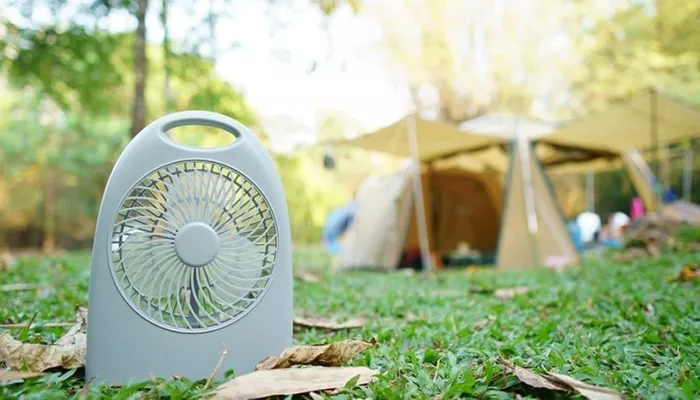Camping is a fantastic way to enjoy the great outdoors. Many people are drawn to different types of campsites. Among them is the Class B campsite. This article will explore what a Class B campsite is, its features, benefits, and some tips for using these campsites effectively.
Understanding Campsite Classifications
Campsites are often classified into categories based on their amenities and facilities. These classifications help campers choose a site that fits their needs and preferences. The most common classifications include:
Class A: Full-service campsites with extensive amenities.
Class B: Basic campsites with limited facilities.
Class C: Primitive sites with minimal amenities.
What Is a Class B Campsite?
A Class B campsite is a type of camping area that offers basic facilities without the full range of services found in Class A sites. Class B campsites typically provide:
Tent Pads: Level areas for setting up tents.
Picnic Tables: A place for meals and relaxation.
Fire Pits: Designated areas for campfires.
Restrooms: Basic toilet facilities, which may be vault toilets or pit toilets.
Class B campsites often lack electricity, running water, and other conveniences found in more developed sites. This classification makes them ideal for those who want to enjoy nature with a little more comfort than primitive sites offer.
Features of Class B Campsites
Class B campsites vary in features depending on the location and management. Here are some common attributes:
1. Location
Class B campsites are usually found in national parks, state parks, and other public lands. They are often situated near natural attractions, such as lakes, rivers, and hiking trails. The scenic surroundings add to the camping experience.
2. Accessibility
Most Class B campsites are accessible by vehicle, but they may require a short walk to reach the camping area. Some sites might be more remote, requiring a hike to access them. This makes them a great option for campers looking for adventure without completely sacrificing convenience.
3. Amenities
While Class B sites do not offer the extensive amenities of Class A campsites, they provide essential features such as:
Basic Restroom Facilities: Usually pit toilets or vault toilets.
Water Access: Some sites may have potable water, but many do not. Campers should check ahead.
Campfire Facilities: Designated fire pits or rings for safe campfires.
4. Capacity
Class B campsites typically accommodate several tents or a limited number of RVs. They often have designated sites to maintain order and ensure everyone has space.
Benefits of Class B Campsites
Choosing a Class B campsite has several advantages, especially for those looking for a balance between comfort and wilderness experience.
1. Affordability
Class B campsites are often less expensive than Class A sites. This makes them a great option for budget-conscious campers. Many parks charge a minimal fee, making it accessible for everyone.
2. Closer to Nature
Class B campsites often have fewer amenities, allowing campers to immerse themselves in nature. The lack of distractions can enhance the outdoor experience, providing a chance to disconnect from technology and reconnect with the environment.
3. Less Crowded
Class B campsites may be less popular than Class A sites, leading to fewer crowds. This allows for a more peaceful camping experience, perfect for relaxation and solitude.
4. Flexibility
With basic facilities, Class B campsites offer more flexibility. Campers can set up their tents in various locations within the site, allowing for personalization of their camping experience.
Tips for Camping at Class B Campsites
To make the most of your experience at a Class B campsite, consider these tips:
1. Plan Ahead
Research the campsite before you go. Check for availability, location, and specific regulations. Some campsites may require reservations, while others are first-come, first-served.
2. Pack Essential Supplies
Since Class B campsites may lack amenities, it’s crucial to bring your supplies. Some essentials include:
Water: Always bring enough water for drinking, cooking, and cleaning.
Food: Pack non-perishable items and a cooler for perishables.
Camping Gear: Ensure you have a tent, sleeping bags, and cooking equipment.
First Aid Kit: Always be prepared for minor injuries.
3. Respect Nature
Leave no trace. This means cleaning up after yourself, staying on trails, and not disturbing wildlife. Respecting nature ensures that everyone can enjoy these beautiful spaces.
4. Fire Safety
If your campsite allows campfires, follow all safety guidelines. Keep fires contained to designated fire pits and fully extinguish them before leaving. This prevents wildfires and protects the environment.
5. Be Prepared for Weather Changes
Weather can change quickly in the outdoors. Always check the forecast before your trip and be prepared for rain or temperature drops. Bringing appropriate clothing and gear can enhance your comfort and safety.
Popular Class B Campsites
Here are a few well-known Class B campsites across the United States:
1. Shenandoah National Park, Virginia
This national park features numerous Class B campsites nestled in the Blue Ridge Mountains. Campers can enjoy hiking trails and stunning views of the landscape.
2. Yosemite National Park, California
Yosemite offers a variety of camping options, including Class B sites. These campsites provide access to breathtaking scenery and iconic landmarks like El Capitan and Half Dome.
3. Glacier National Park, Montana
With its rugged terrain and incredible wildlife, Glacier National Park is a top destination for campers. Class B sites allow visitors to experience the park’s natural beauty up close.
4. Acadia National Park, Maine
Acadia’s Class B campsites offer a unique coastal experience. Campers can explore rocky shorelines and lush forests while enjoying the beauty of the Atlantic Ocean.
Conclusion
Class B campsites provide a fantastic way to enjoy the great outdoors with essential amenities. They strike a balance between comfort and nature, making them perfect for many campers. By understanding what to expect and planning accordingly, you can make the most of your Class B camping experience. So grab your gear, pick a site, and immerse yourself in the beauty of nature!
Related topics:

